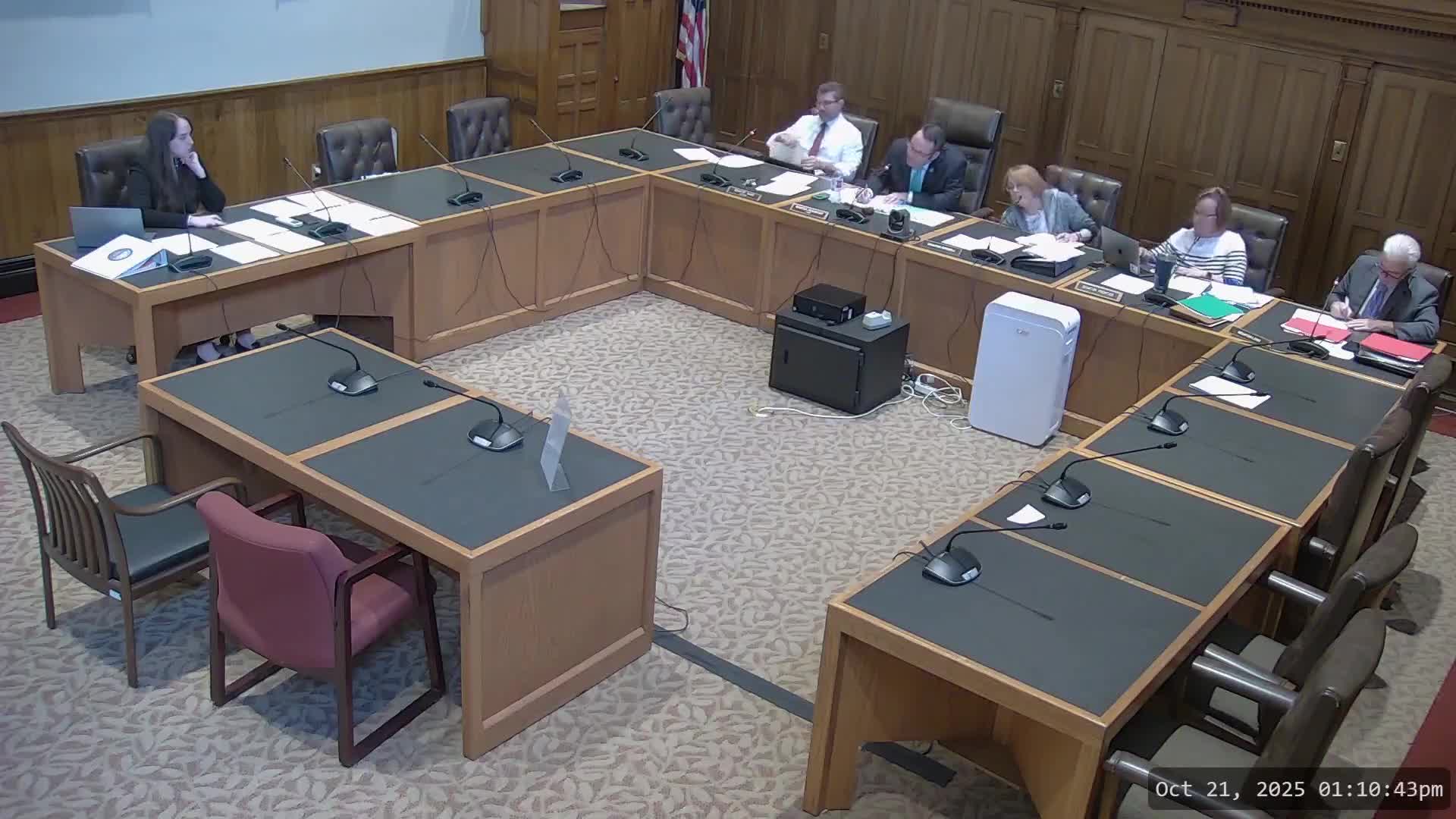Committee advances bill requiring insurers to publish negotiated rates and drug prices
Get AI-powered insights, summaries, and transcripts
Subscribe
Summary
The committee voted to advance House Bill 705, which would require carriers to publish standardized in-network negotiated rates, out-of-network allowed amounts, and prescription-drug price files; the New Hampshire Insurance Department would oversee compliance and defer to federal rules where conflicts arise.
Chair Rocheford brought House Bill 705 before the committee and the committee voted to move the bill forward after hearing from the Commissioner of the New Hampshire Insurance Department and Dr. Jason Aziz, director of the department’s data analytics unit.
The commissioner told the committee the bill would require every health plan and carrier to publish three standardized files: an in-network rate file listing negotiated prices for covered items and services, an out-of-network allowed amount file showing billed charges and average allowed payments, and a prescription drug file. The commissioner said those data would be presented in a standardized format and ‘‘made available to the public.’’
The commissioner said the department included a provision so that ‘‘in the event that anything in our bill or in the rules that we promulgate are at odds with what the federal government ultimately sets forth, we will default to what the federal government sets forth’’ to avoid duplication and potential preemption conflicts. He described New Hampshire as having ‘‘a long and proud history of being on the cutting edge of transparency efforts’’ and said state oversight would make compliance easier to manage than federal oversight.
Dr. Jason Aziz told the committee the department’s interest is ‘‘centered around the comparability across the different actors in the health insurance market,’’ and that federal implementation so far had not specified a standard format that would permit apples-to-apples comparisons across carriers. He said existing state efforts post a limited set of empirically based median paid amounts for about 300 services but that ‘‘there’s well over 10,000’’ services citizens encounter; the bill’s data would expand the scope of price information available to the public.
Committee members asked about timing given outstanding federal rulemaking and whether carriers are prepared. The commissioner said carriers had expressed concern about the additional work and cost but that the federal requirement will apply nationwide and that carriers generally prefer to work with the state department rather than federal agencies. The department said it would build in flexibility, safe harbors for good-faith compliance, and the ability to use third-party vendors or clearinghouses.
Sen. Prentice asked about timing and whether the state would be ready when federal guidance settles; the commissioner replied the department will wait until federal guidance stabilizes and then proceed collaboratively with carriers. After discussion, the committee voted to advance House Bill 705.
The committee’s action directs the department to continue coordination with carriers on technical format, compliance timelines, and consumer-facing presentation of the data.
